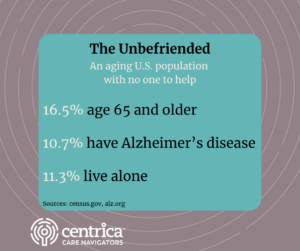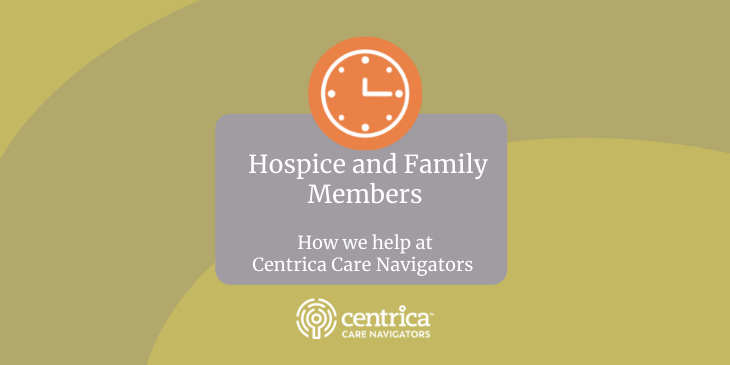Here’s one of the classic myths about hospice care: “Hospice can only help when family members are available to provide care.” While our care team works closely with family members of many patients to develop plans of care, having family close by is not the situation for every patient.
While family members probably can’t manage a patient’s medical health, they play a valuable role in keeping patients comfortable and engaged in living life to the best of their ability. Yet for many reasons, people can’t always get the caregiving they deserve from family.
The unbefriended
Maybe they have distant or busy children, grandchildren, parents, and siblings. Perhaps they lived a solitary life, and don’t have anyone personally close to provide care. That makes it a challenge for these people to discuss their health care choices, or to manage some of the legal complexities of hospice and dying. Senior care researchers have dubbed this group the “unbefriended.” It’s estimated that more than 60,000 nursing home residents across the U.S. fit into this category. Others live at home or even on the street.
At Centrica Care Navigators, no one is unbefriended, and no one is ever alone. Every patient has a dedicated care team, including nurses and doctors, who monitor their health. Social workers, chaplains, and volunteers meet with patients in their homes or at our care sites, where they provide emotional and spiritual companionship and support.
If there are family members or friends acting as caregivers, our care team works closely with them. If not, we can help find a location where patients get the appropriate care for their situation – maybe one of our hospice sites, an adult foster care site, or a nursing facility.
Every day, care teams are at work in our hospice sites (Rose Arbor Place in Kalamazoo and Glenn Arbor Place in Battle Creek). Part of that work includes educating and even training family members to be more capable and confident caregivers. But the professional, skilled support is there for patients even if there are no family members to help a patient.

Challenges of caregiving
More than 41 million Americans are caring for someone age 50 or older, about 16.8% of the nation’s population, according to the AARP. Becoming a caregiver for a parent or other family member, or even a friend who is in care, is really like having another job. It takes time, patience, and attention.
We all know those things can be in short supply… especially since caregiving has to be done in addition to going to the office or work site, managing kids and a family, and maybe once in a while taking a moment to relax.
But it’s also an important and often rewarding activity. Caregiving is something that every patient needs, and maybe more importantly, deserves. We always welcome family and friends who want to help take care of a loved one, but those who don’t have anyone to turn won’t be shut out of hospice support. We’re here to help everyone who needs us.
You can learn more by exploring our website or calling Centrica Care Navigators at 269.345.0273.
Our Mission is to guide and support individuals and their caregivers coping with illness, aging, dying, and loss by providing compassionate medical, emotional, spiritual, and personal care.




